When winter snow begins, one of the best things to do is to hit the slopes for a snowboarding trip. Whether you want to take it easy on those bunny hills or go flying down more challenging runs, the key to your next snowboarding trip is preparation. Once you’ve packed your snowboards, there are other packing list essentials to bring on your snowboarding trip.
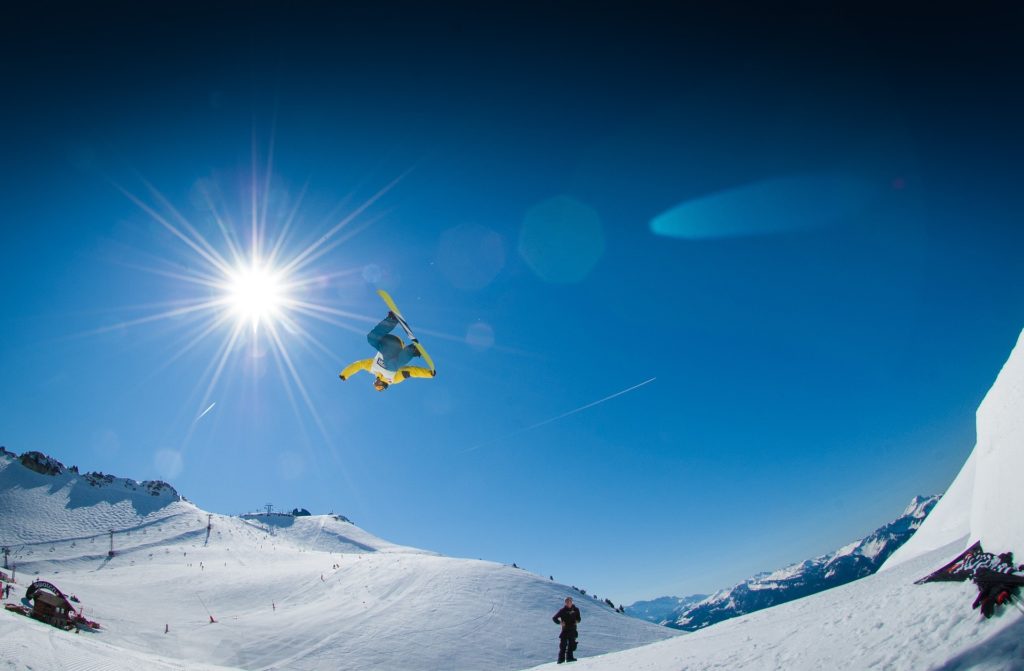
This post may contain affiliate links, and Traveling In Heels may receive a small commission if you click on the link and purchase. Thank you for your support.
Snowboarding Trip Packing List Essentials
Table of Contents
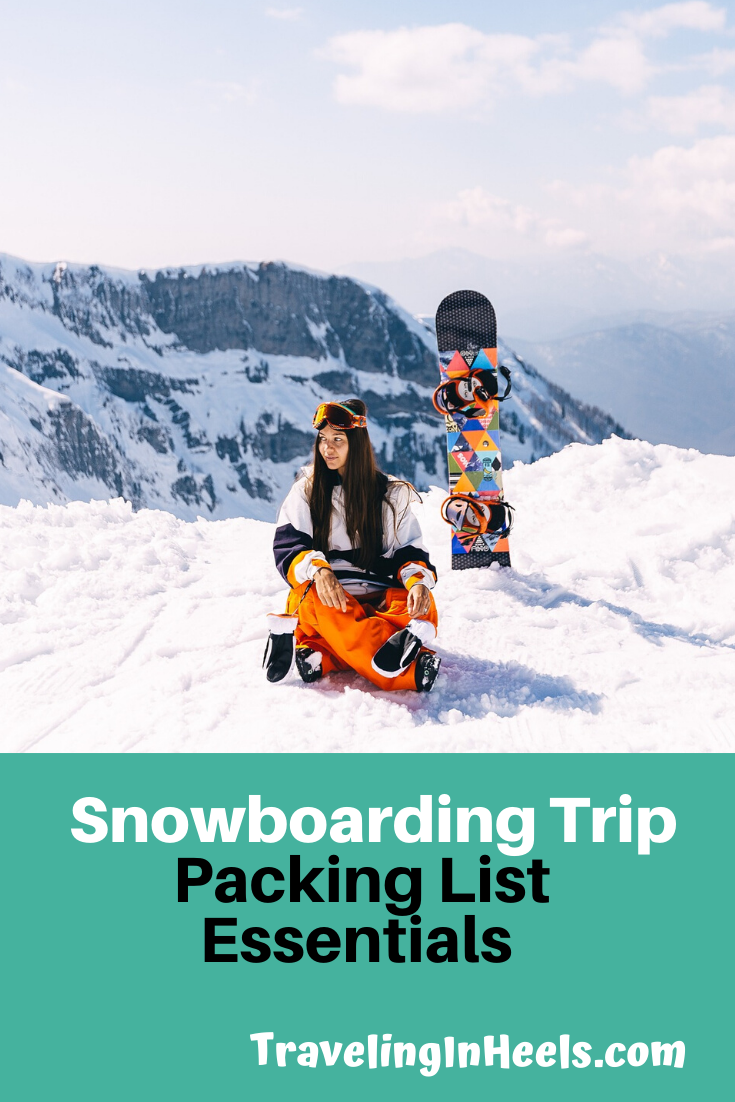
The good news is that skiing and snowboarding both enjoy an excellent safety record. These winter sports are less dangerous than other high-energy participation sports and less so than some common activities. While to some, the thought of speeding down a mountain on snowboards or skis is on the far side of crazy. Others love the adrenalin of riding the gondola up the mountain and then snowboarding their way down the slope.
For those committed to spend at least some of their winter days on the slopes, just you and your snowboard, the question is what to pack? What to leave out?
Aside from packing the necessary snowboards, read on for our snowboarding trip packing list essentials, the absolute must-haves on your next snowboarding vacation.
Read More: Ski (or Snowboarding) Tips for the First-Timer
Join our Mailing list and download our FREE checklist – Snowboarding Trip Packing List Essentials.
Snowboard, Boots, and Bindings
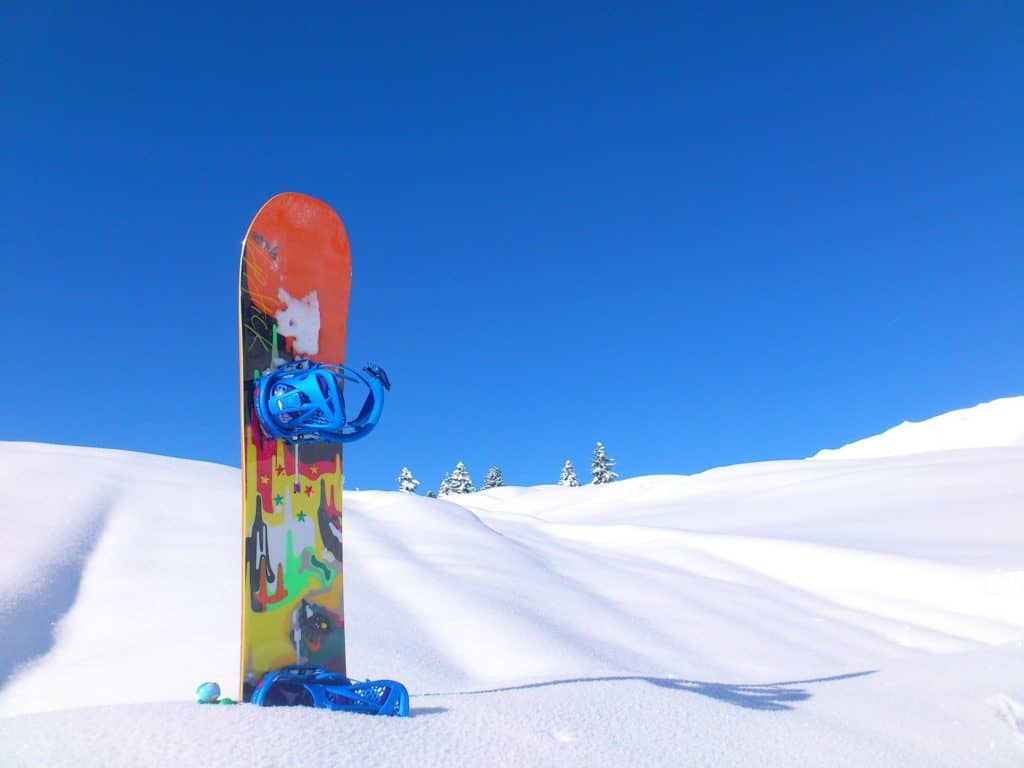
To rent or not to rent?
The bottom line is to ask yourself the question: how invested am I into snowboarding? If you plan on traveling to the slopes only less than a few times a year, it may not be worth the cost to lug the snowboard and bindings to each of your snowboarding trips, especially if you’re boarding a flight to your next winter vacation destination.
The price range to purchase your own snowboarding gear ranges widely from $600 to $1,300, for solid and fitted equipment. You certainly can purchase discounted gear online at Amazon, but then you’ll need to take it to a local sporting goods store to have the bindings and boots fitted, which racks up additional costs. Add in around $50 excess baggage fees each way to get snowboarding equipment on the plane.
However, if like me, you live in Colorado, and the slopes are a short road trip away, investing in your own snowboard gear, even for just a few jaunts a year, might well be worth it.
For those taking the family on these snowboarding trips, consider that the kids will likely outgrow their snowboards as frequently as they outgrow shoes. For the family of infrequent snowboarding trips, you might want to wait until they’ve at least gotten into their teen years and most of their growth spurts have halted before investing in snowboards and gear.
Otherwise, I highly recommend renting your snowboarding, boots, binding, and gear. It just makes sense.
Snowboard Helmet
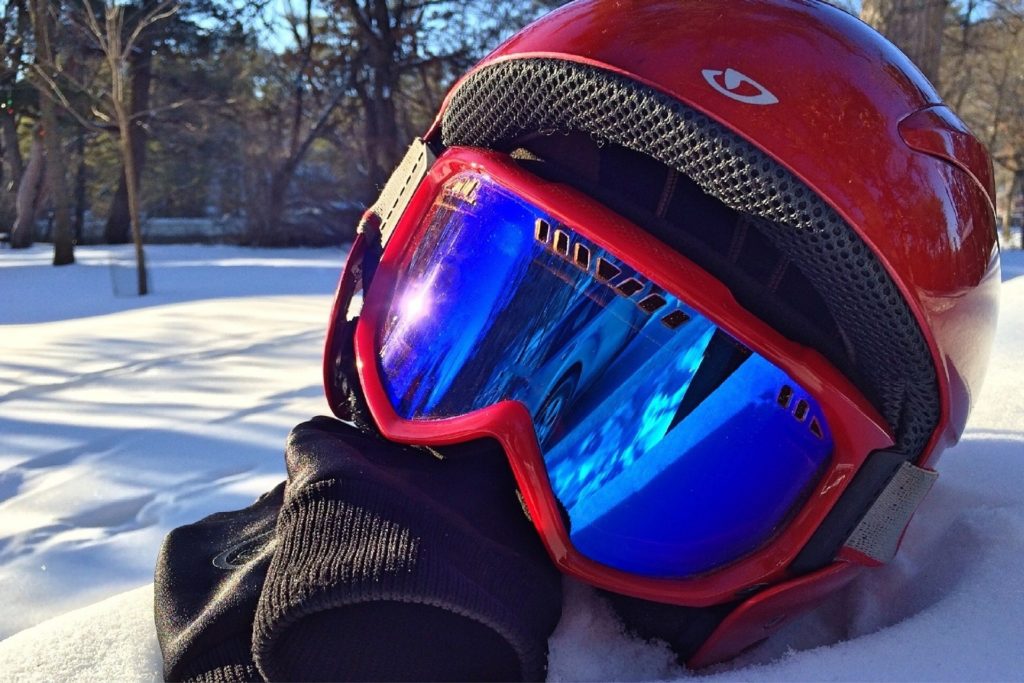
Protect your head. Your brain is the most important organ in your body, so wearing a snowboard helmet should be a no-brainer – get it?… As a beginner, you may struggle with control, and let’s face it accidents happen even when you’re a highly-skilled snowboarder. Protecting your head is paramount.
If you do not own a helmet, the ski resort will have various options to rent one that ensure you will find one that fits.
Snow Pants, Sweaters, and Jackets
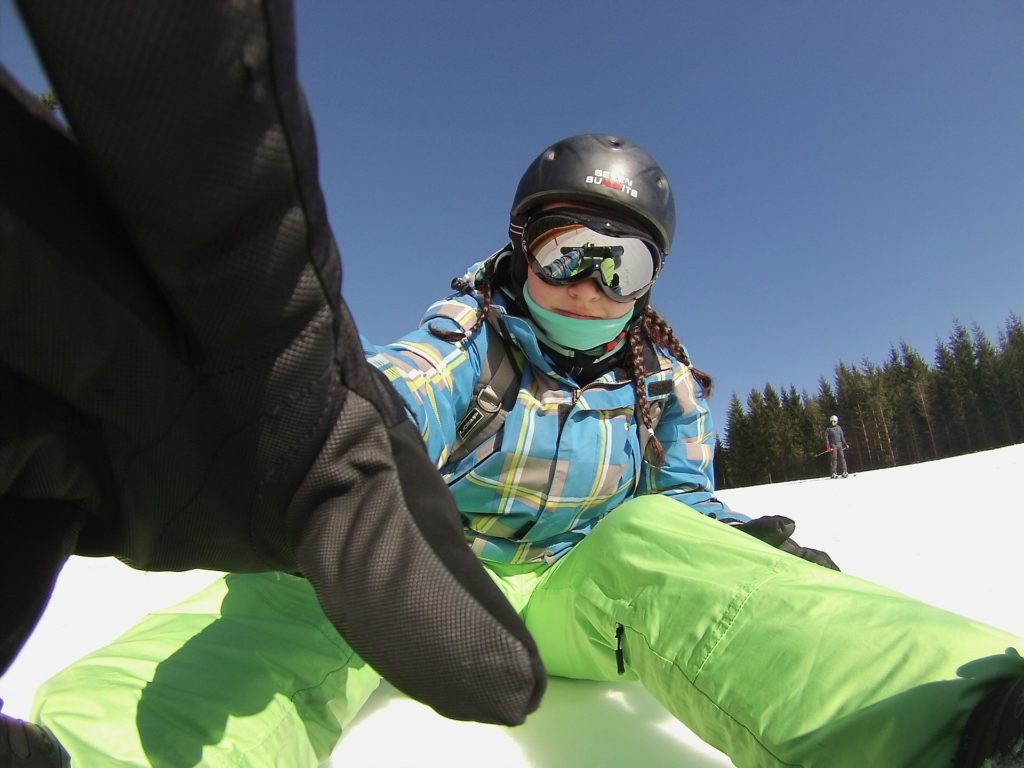
When planning for a day of snowboarding, layers are extremely vital. Wear clothes that are made of synthetic materials to dry your sweat fast. Layer a long undergarment beneath a jacket or sweater. Your clothing will be exposed to ice and snow, so wear waterproof pants. The last thing you want to deal with is wet pants.
Choose snowboarding pants that are breathable, insulated, and highly rated. Also, go for dark-colored pants (dark blue, brown, or grey) to hide the marks and dirt you may get from roughing up the snowboards.
Nah, who are we kidding? We love bright colors, original-says-me-statement snowboarding pants, right? If you don’t care about the dirt (seriously, we’re snowboarding bad-asses!), then go for style and snowboarding pants that make a statement!
Snowboard Goggles
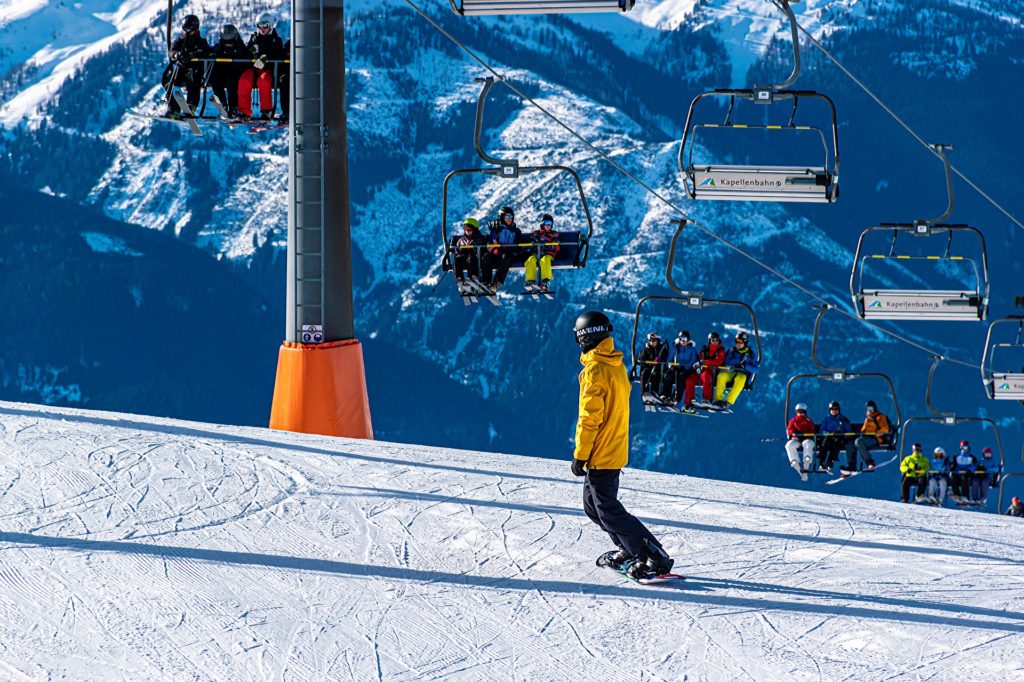
Invest in high-quality goggles. There are snow goggles that feature various lenses to match the variations and conditions in light. When snowboarding, you must be able to see the snow contours. Look for goggles that are suitable for both clouds and the sun. These goggles usually have a microfiber bag that also acts as a lens cleaner.
When purchasing your snow goggles, check if they fit correctly. They could fog up when air can penetrate through them.
Gloves
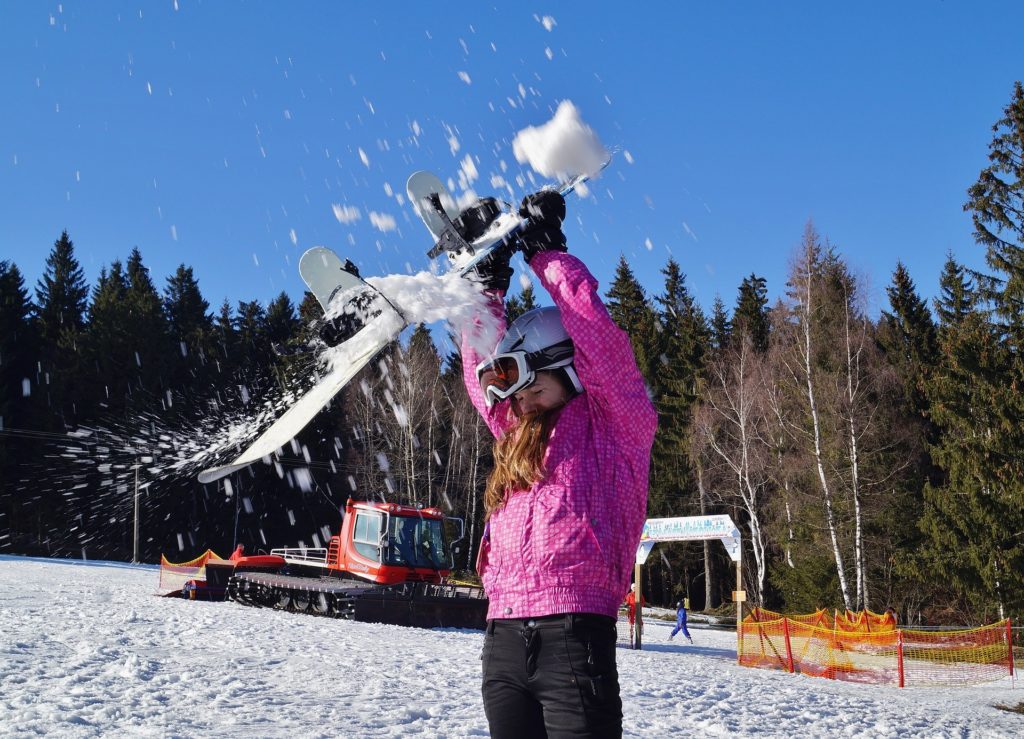
On your adventure to the slopes, remember to have your gloves with you. Opt for winter sports gloves, Thinsulate, so your hands are protected from snow and wind. These kinds of gloves also prevent your hands from overheating.
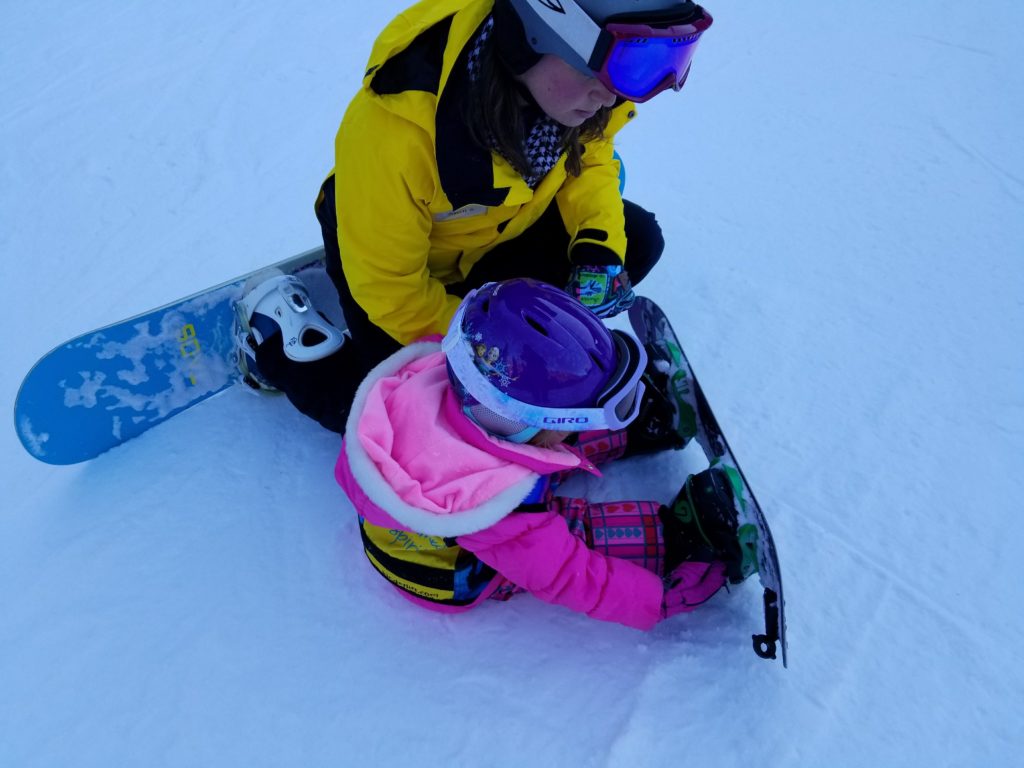
For kids, though, we recommend mittens. Have you ever tried to squeeze a toddler or preschooler’s fingers into those gloves?
And make sure to purchase a supply of Air-activated hand warmers to keep your hands and fingers toasty warm.
Socks and Boots
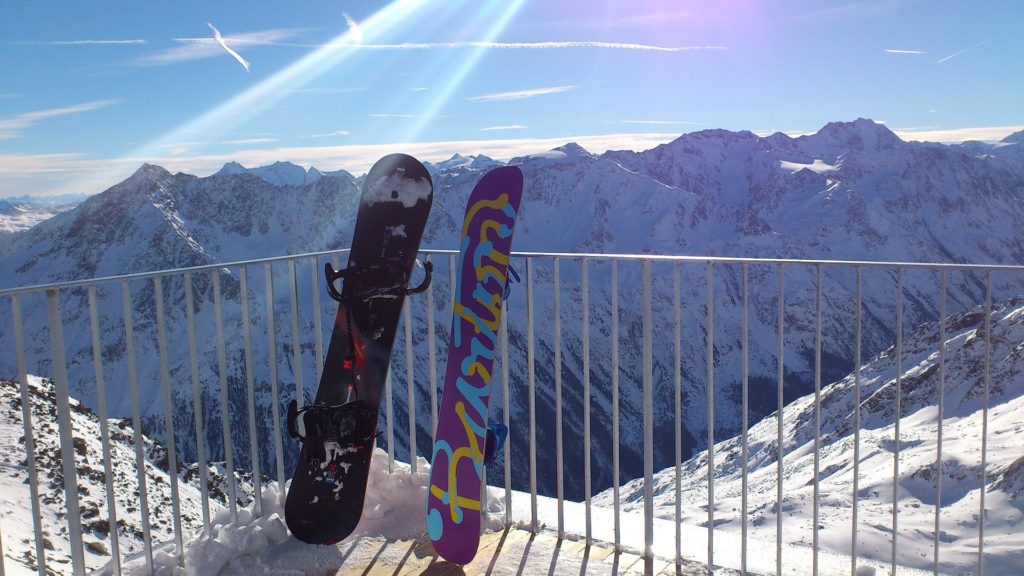
It is important to use the right snowboards with the right socks. Make sure the socks are waterproof. There is a big difference when you wear the wrong socks and boots, as it will turn your great day on the slopes with the most uncomfortable and miserable one on the slopes.
Choose boots and socks that are comfortable to wear with the right length. Find socks that come in the right and left to ensure that they support and cushion the correct points.
You’ll also need a pair of warm boots to traipse around the mountain resort, when not snowboarding.
Snowboard Bag
You will need a snowboard bag to carry all your gear, including your snowboards. Bubble wrapping or carrying the snowboard is not an option. Without a snowboard bag, your gear can easily get damaged. Consider using a snowboard bag that can fit your biggest board if you are bringing more than one. However, make sure that the bag is not too long.
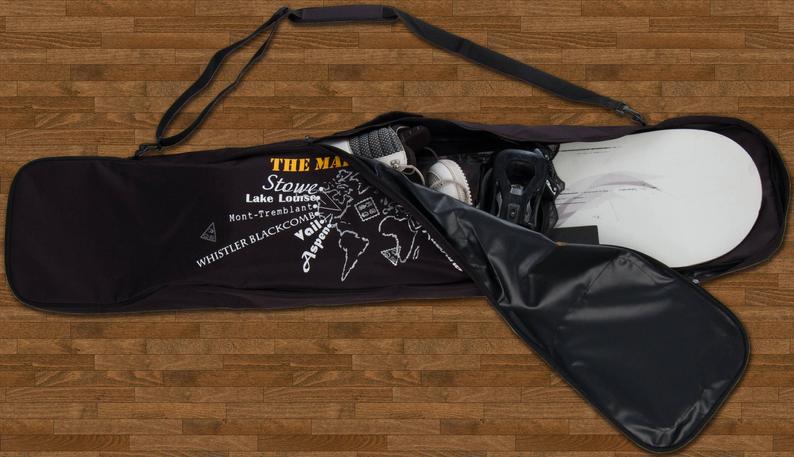
If you are using more than one snowboard on your winter trip, have some layer between them to prevent them from scratching each other. Remove the bindings and put socks into the bindings.
Next, fold the socks and strap them up. Take off the base plates when you have removed the bindings. Use a zip lock bag to put them all together along with the screws.
Prepare for Accidents
Snowboarding is an extreme sport, and accidents may happen.
With this, you should have a first aid kit with you. Stock up a first aid kit well, so you have something to treat minor injuries on the slope. Add the first aid kit to your snowboard bag.
Other Snowboarding Trip Essentials
Some of the other snowboarding essentials that you should have with you during your trip on the snow are snowboard lock, warm hat, neck warmer, sunscreen, sunglasses,GoPro, etc.
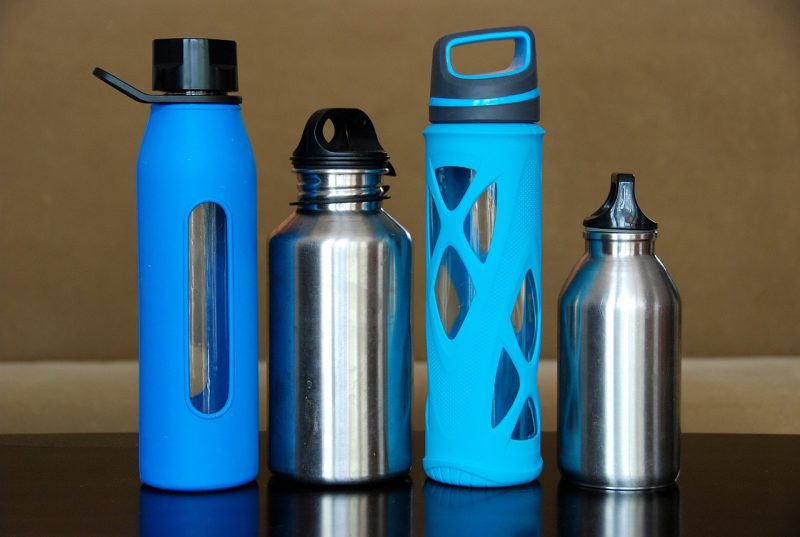
When traveling, don’t forget to drink plenty of water to stay hydrated and prevent altitude sickness.

It’s so important to have the right gear! I skied, then snowboarded and am now back skiing. I have all my own equipment apart from skis and poles – the technology changes to quickly that I like to be able to rent the latest models!
Lovely information
It’s so important to have good gear that you trust when you’re out on the hills. Awesome list with great advice.
As someone who has never snowboarded before, i definitely need a post like this! What a great reference.
I’m a firm believer that having the proper gear can make or break the experience! Great list of essentials!